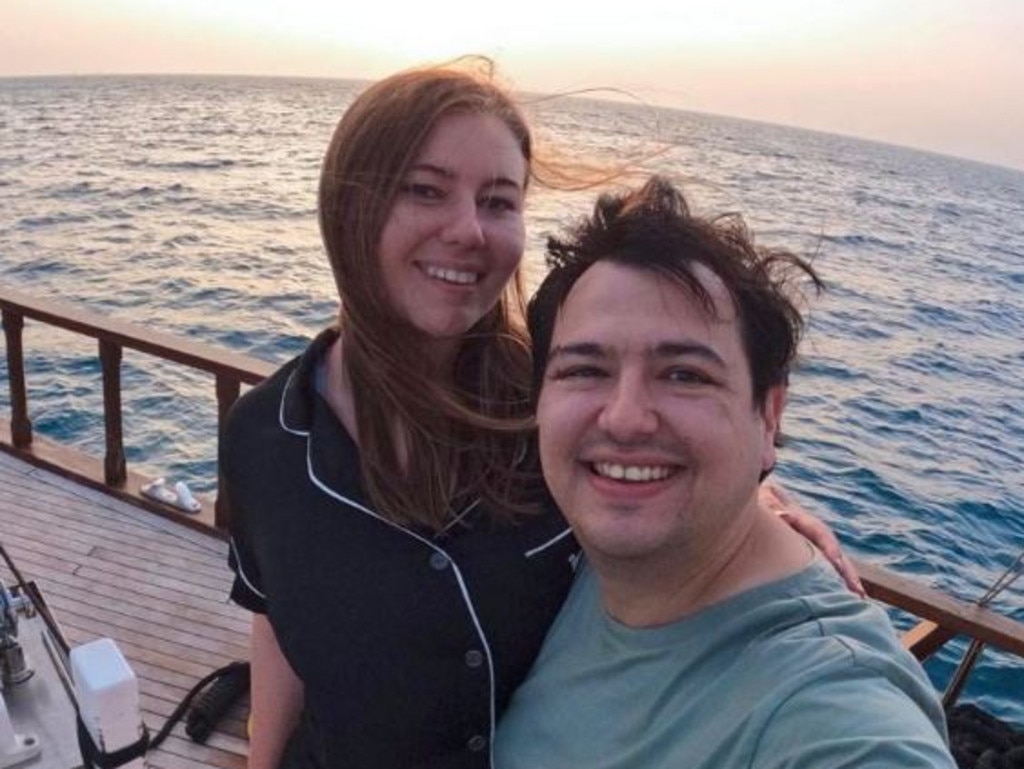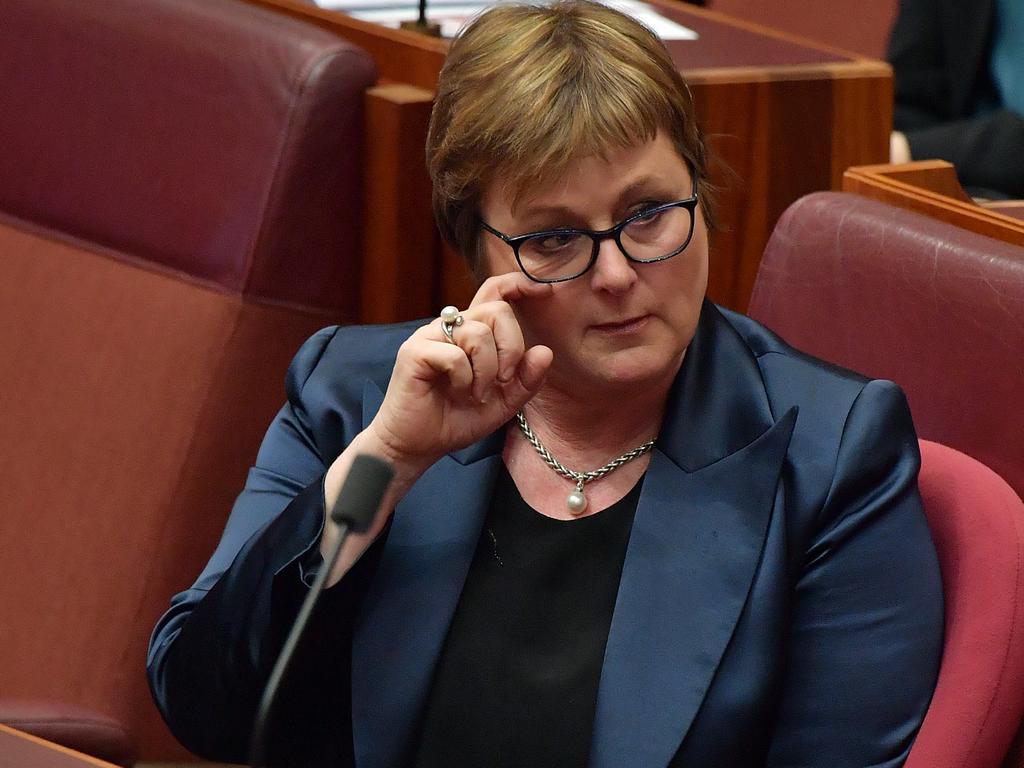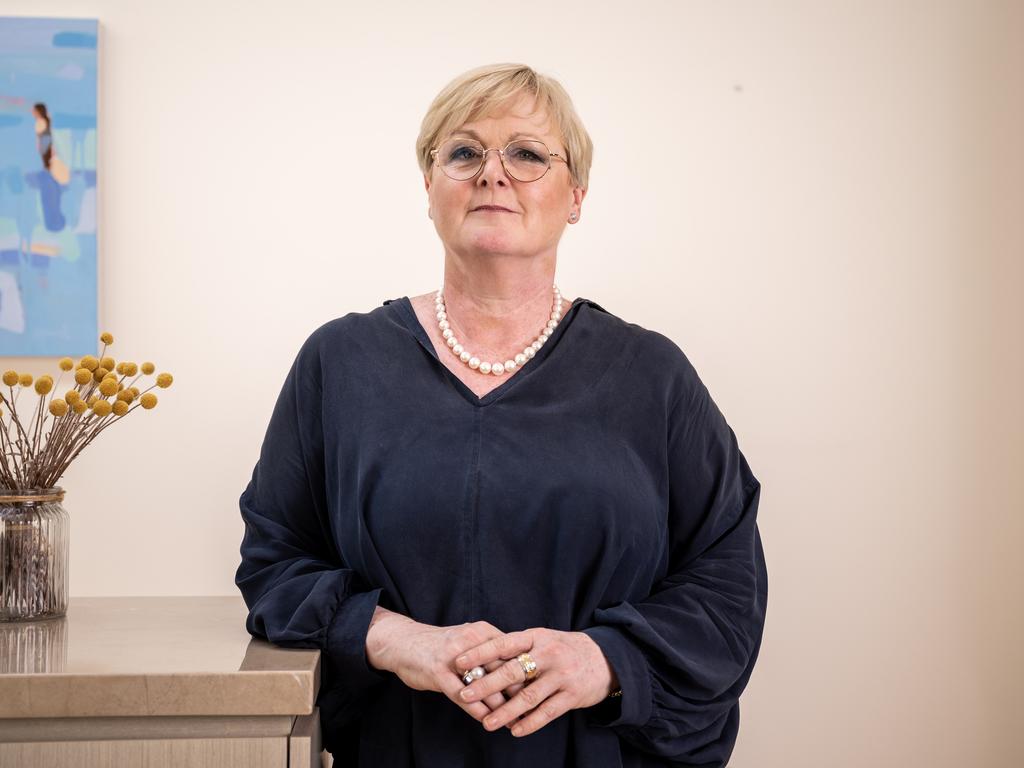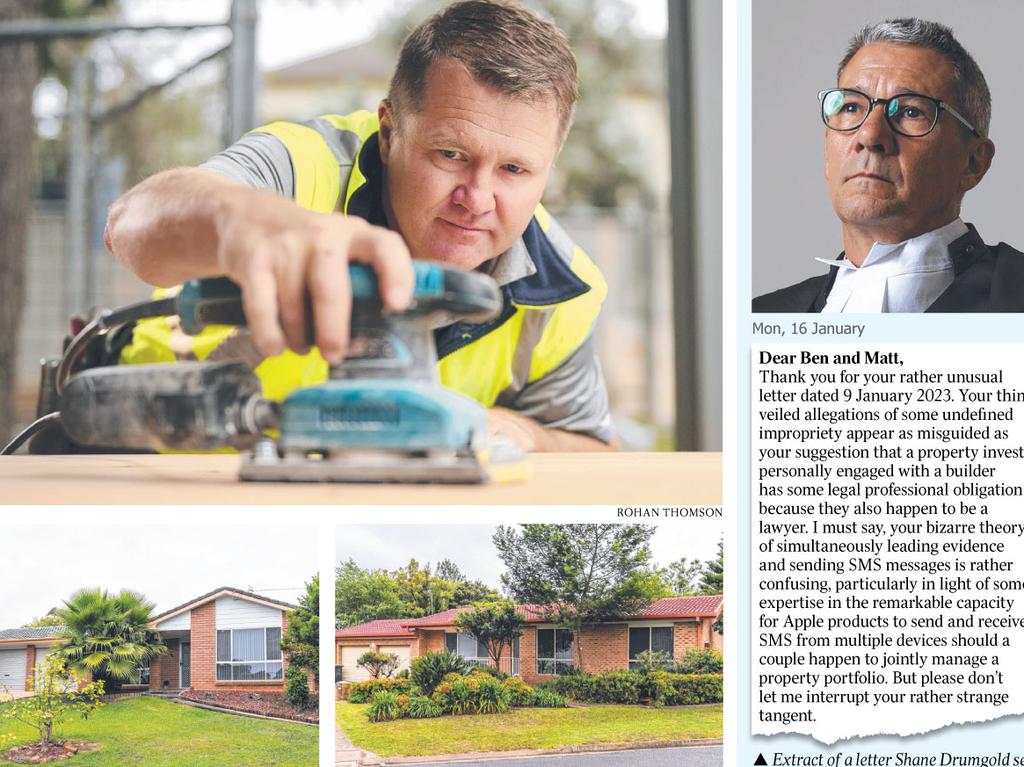Brittany Higgins, Bruce Lehrmann, Linda Reynolds and the Parliament House story you haven’t heard
When Brittany Higgins walked out of Parliament House on March 23, 2019, she was captured on CCTV wearing a Carla Zampatti jacket. That coat defines the gaping divide between the public’s perception of the Higgins saga and what others knew.
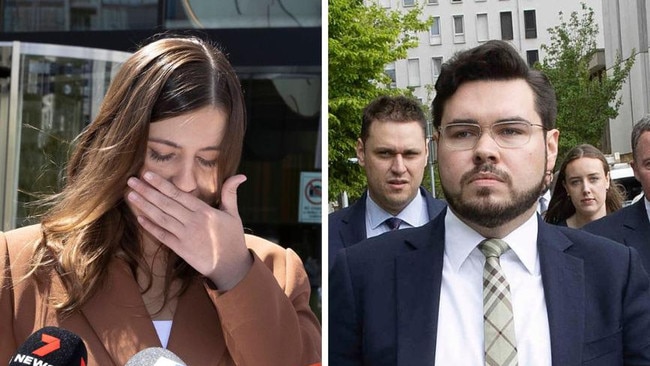
When Brittany Higgins walked out of Parliament House at 10.01am on Saturday, March 23, 2019, she was captured on CCTV wearing a black and white Carla Zampatti jacket.
“I borrowed a jacket from the goodwill box,” Higgins told police just over a week later, on April 1.
The Zampatti coat – where it came from, let alone what happened to it – is a small detail in a very big story. Yet it defines the gaping, perplexing divide between the public’s perception of the Higgins saga and what others knew. The jacket is emblematic of the doubts and disagreements about that night and what happened after.
While the young staffer would repeat the claim that she took a jacket from a goodwill box in Linda Reynolds’ ministerial suite in her testimony in the ACT Supreme Court last October during the rape trial of Bruce Lehrmann, members of Reynolds’ office have told The Weekend Australian that there was no goodwill bin or box or pile of clothes for charity in Reynolds’ ministerial suite.
There was just a wardrobe full of the minister’s jackets. Including the Zampatti that Higgins took, after waking up in her boss’s office following a night drinking at The Dock bar in Canberra with colleagues and a Bumble date, before going to a nightclub for more drinks with Lehrmann and two other staffers.
Away from the court case that followed after Higgins alleged Lehrmann raped her in the ministerial suite, after the media stories, the questions in parliament, the poring over details, all of which moulded public opinion, there was another story the public never heard. And this story might not quite match what the public thought they knew.
Higgins has used the media to tell her story many times. Lehrmann told his story too, during a three-hour recorded police interview that was played in court last year. The trial, as we know, was aborted last October after a jury member went rogue. The Director of Public Prosecutions chose not to proceed with a second trial. Lehrmann has, all along, maintained his innocence. And many untold stories remain just that.
With this week marking the two-year anniversary of the explosive interview with Higgins by Lisa Wilkinson on The Project, Reynolds wants to set the record straight. Once and for all time, she says.
Reynolds spoke with The Weekend Australian last weekend, over more than four hours. As she sat down, she said she would answer every question. No holds barred. She is a no-nonsense woman. There is not a hint of self-pity. Which is remarkable given that Reynolds has been portrayed as a central villain in the Higgins story, a political conspirator who hid the rape of her staffer prior to the 2019 federal election.
At the outset, Reynolds tells me she respects Higgins’ right to tell her story. “I respected her agency and it was her to story to tell. Just because it didn’t match with my recollection of events and my story, it doesn’t invalidate her right to tell her story, which she has,” Reynolds says.
“But it didn’t accord with my recollection of what had happened two years ago.”
Reynolds was not able to tell her story during the criminal trial last year; prosecutor Shane Drumgold treated her as a hostile witness during the trial. Reynolds was prevented from telling her story during the civil claim where Higgins made serious allegations against her former boss and also against Reynolds’ chief of staff, Fiona Brown; Labor Attorney-General Mark Dreyfus used his powers to muzzle Reynolds, instructing her not to attend the mediation in return for the commonwealth paying her legal fees.
Now, Reynolds is speaking up.
‘A bomb went off in my head’
“It’s been the hardest two years of my life, without question,” she says, sitting on a sofa across from her partner of nine years, Robert Reid.
Reynolds recounts watching the Project interview in her office with her staff. “It was just like a bomb went off in my head. It was like, what is, what is Lisa saying? What is this conversation about me and about Fiona?” Reynolds says. “Because almost everything that was said did not accord with my recollection of what had happened two years previously.
“I actually couldn’t believe what I was hearing and seeing. It was just such a shock. Being accused of covering up the rape of a young woman for political purposes. It was like a stake through my heart.
“It hurt,” she says, quietly.
That pain is still not far from the surface. The 57-year-old former defence minister recalls how Labor senators “just kept at me asking me questions day after day, essentially saying that I covered up the rape of a young woman. And that was one of the most distressing and confronting things in your workplace, having your colleagues not only in your workplace, but in front of the entire nation, accusing you day after day of covering up the rape of a woman.”
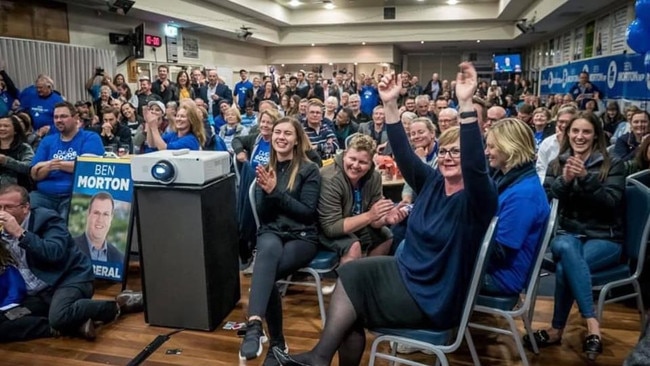
Labor senators Penny Wong and Katy Gallagher led the charge, using a pincer movement in the days and weeks that followed the Project interview. Between them they asked Reynolds eight questions in the Senate on February 15, 2021. The next day, February 16, another six questions were fired at Reynolds; the next day, another nine.
Reynolds gave a statement in the Senate on February 18, setting out how, during a meeting with Higgins, she offered her young staffer full support in whatever course of action she chose. In that statement to her Senate colleagues, Reynolds asked that this very serious issue be dealt with “away from politics”.
Not a chance. Labor senators lined up the next day, posing nine questions to her, then a dozen more the following day.
Reynolds maintained then what she maintains now: she did the right thing, supporting Higgins, encouraging her to speak with AFP officers in Parliament House and to seek counselling if that’s what she wanted. “Parliament is the last place, and the media is the last place that these matters should ever be discussed,” she says to me. “Having supported family members and friends, and a colleague in the parliament as well, a staffer in previous years … I understood the concept of agency from those personal experiences. Anything relating to sexual assault … these are not matters that should be played out in public.”
‘The incident’
Reynolds is keen to tell her story about what happened during the first few days after Higgins and Lehrmann entered her ministerial suite in the early hours of Saturday, March 23, 2019. This was, she says, a very serious security breach. In her police statement it is described as “the incident”.
Reynolds is a stickler for rules, proper processes, and, working in the defence portfolio, she explains how highly sensitive matters in this area demand a higher standard.
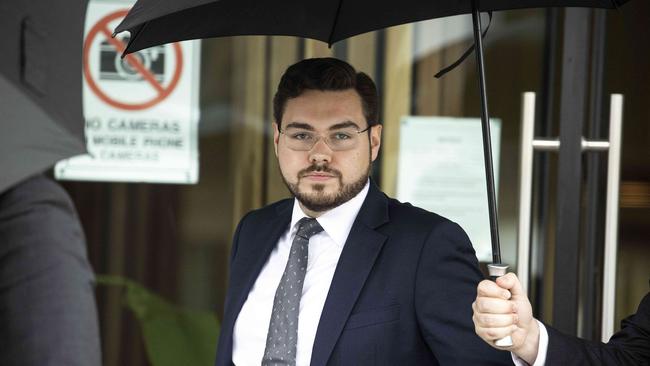
“When you work in a ministerial office, either as a minister or the trusted staff, you are privileged to great information, and in the defence portfolio highly sensitive information. And I think as every Australian would expect, that comes with a higher standard of conduct and behaviour and security is No.1. So that was just a huge security breach.”
She says entering her ministerial suite unauthorised, in the early hours of Saturday night, as Higgins and Lehrmann had done, was “a sackable offence”. “It doesn’t get much worse than that.”
As Reynolds told police, the Department of Parliamentary Services was notified of the unauthorised entry by the two drunk staffers by security guards. The Department of Finance – effectively the HR department of parliament – was notified and told Reynolds’ chief of staff, Brown, about the security breach and provided advice on how to appropriately discipline staff about the unauthorised after-hours access to the minister’s suite.
That same day, Tuesday, March 26, Brown had separate meetings with Lehrmann, first, and then with Higgins about the security breach.
As Brown said in her evidence in court last year, Lehrmann was asked to hand in his security pass. This was his second serious security breach. His employment was terminated in the following days.
Brown met Higgins next to ask for her account of entering the minister’s office after-hours and unauthorised. The 24-year-old staffer was not dismissed but instead was reminded of her responsibilities under the code of conduct, which she had not previously signed.
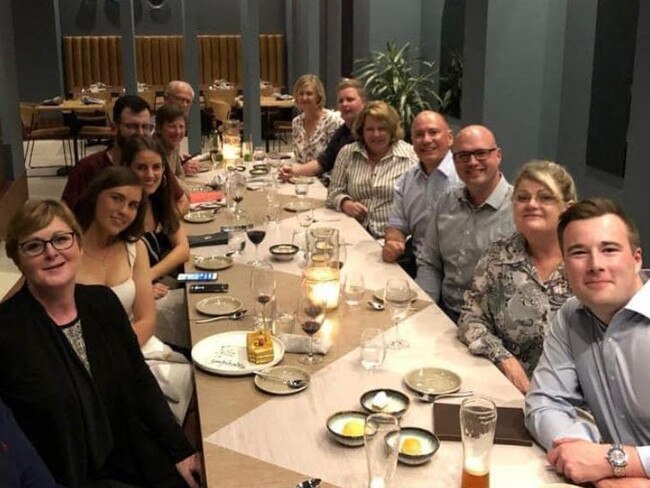
Reynolds says she was told by Brown that during this first meeting Higgins said she was drunk and that she was responsible for her actions. Brown and Reynolds took that at face value.
I ask Reynolds what the prime minister’s office was told at that time. “This is sort of one of the great myths,” she says, “… that I and my chief of staff actually had conversations back then with the prime minister’s office about an allegation of rape. It wasn’t, it was actually in relation to Bruce (Lehrmann) because you talked to the prime minister’s office – they do ministerial staffing. And then also to the Department of Finance and the special minister of state (Alex Hawke) because they’re the HR department for government ministers. Fiona talked to both, quite rightly, got detailed advice in her usual meticulous way.”
Brown met Higgins again, on Thursday, March 28. Brown gave evidence during the trial that as Higgins left this meeting, Higgins turned to say: “I remember that he was on top of me.” When Brown responded in dismay, asking Higgins whether something happened that she didn’t want to have happen, Brown told the court that Higgins shook her head. The young staffer said her dad was coming to Canberra. Brown said in court she told Higgins: “Oh, okay, well, that’s good. Okay, well, we are here if you want to do anything, we are here. And she seemed composed.”
Reynolds had been in Brisbane on Tuesday, when Brown first met with Higgins. The minister returned to Canberra that evening, and travelled to Perth on Wednesday night. She was in constant conversation with Brown about her meetings with Higgins.
Reynolds describes her conversations with Brown about Higgins: “In the first meeting she’s (Higgins) remorseful, embarrassed. Apologising. It’s the second meeting where she starts to get more upset. Fiona had done all the right things. Fiona did absolutely everything that she was advised to do, but she was also advised about agency.”
Reynolds is referring to an email that Brown received at 6.05pm on March 29, 2019, from a Department of Finance official that summarised the actions and support offered by Brown to Higgins during their meetings and phone conversations. It included advising Higgins about counselling services, advising Higgins that it was her choice to make a complaint, and that she would be supported at any stage that she decided to pursue a matter with police.
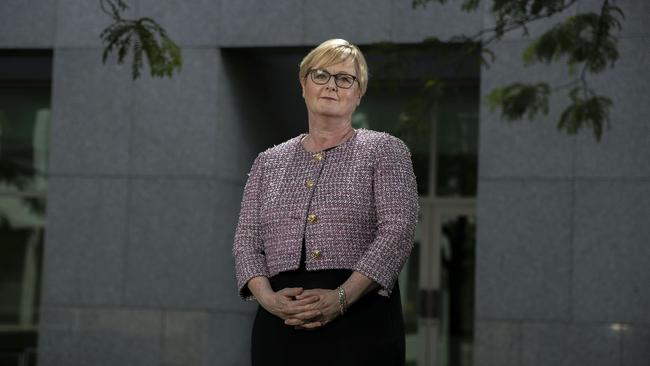
In that same email to Brown, the department confirms that “the steps you have taken are appropriate” and then says: “Ultimately any decision as to whether to lodge a police report or pursue any other form of complaint relating to this matter would be a personal choice of the person involved. I note the 1800Respect website recommends the person should have ‘as much control as possible over what to do next’ and that a person ‘may decide not to report to police, or to have a medical or examination … This is their choice and must be respected’. For a referral to be made on her behalf, or without her consent or against her wishes could be harmful to her.”
Reynolds wanted to check on Higgins when she was back in the office on Monday; Brown and Reynolds were concerned that something sexual had happened.
“I came back on the Monday (April 1) and she (Higgins) didn’t make an allegation of rape. I tried to be sympathetic, and I did say to her that there’s AFP in the building, they’re probably better to talk to. They’ve got counsellors available and things if you think you need it.
“If Brittany or anybody else hasn’t made an allegation of rape, then you can’t force them to do anything. But you can be there to support, which as you can see from all those actions, she was,” says Reynolds.
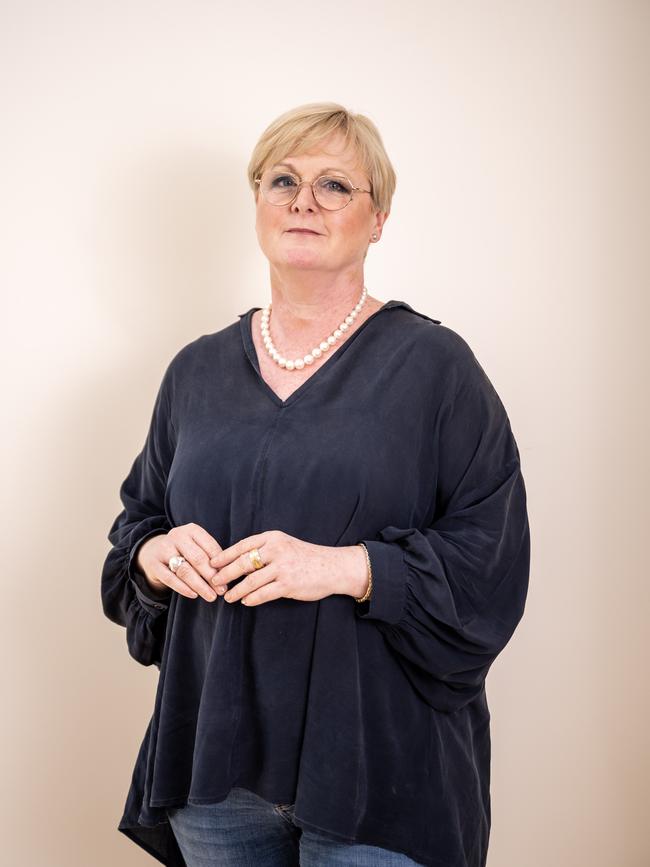
Reynolds also relayed in her formal police statement that during this meeting Higgins was “extremely apologetic”, described her actions as “unprofessional” and said to Reynolds that “she didn’t want to lose her job”.
I ask: Did Higgins tell Reynolds that she was raped that night?
“No,” says Reynolds, “there was never any allegation of rape.”
Did she say she was assaulted in some way?
“No,” says Reynolds.
Did Brown tell Reynolds that Higgins mentioned a rape or assault to her? “No,” says Reynolds.
Higgins confirmed this to journalist Samantha Maiden. “I said (to Brown) that he was on top of me. I think for the longest time I was really weird about actually saying it was rape. I don’t know why. I was very delicate about it. I think from our exchange she understood the inference,’’ Higgins told news.com.au.
‘Lying cow’
Reynolds’ usual polite demeanour fell away as news broke about Higgins’ allegations that she and her chief of staff had not supported her. Reynolds would utter those fateful words – “lying cow” – that would later be splashed across the media when it was first reported by this newspaper.
The wink, wink insinuation was that Reynolds questioned the truth of the rape allegation that Higgins made on television that evening. “That was wrong,” says Reynolds. No one can know what happened that night except the two people involved.
Reynolds says she was reacting to allegations, aired in the media the first time, that she and Brown had treated Higgins poorly, that they brought Higgins into Reynolds’ office knowing that Higgins claimed a rape had taken place on the sofa in that office, and was forced to choose between reporting a rape to the police or keeping her job. “It [her outburst] was about the alleged lack of support that Fiona and I offered her.”
Reynolds maintains she did everything she could to support Higgins. Why then did Reynolds pay a sum of money to Higgins after the “lying cow” outburst? She says, after what would unfold in the next few days and weeks, “I just didn’t have the strength to fight it.” Many saw the payment as go-away money given it could not have been defamatory for Reynolds to contest Higgins’ claims that she was unsupported by her and Brown.
Did Reynolds ever imply that Higgins’ job was on the line if she made a police complaint?
“No. Never,” says Reynolds.
In fact, when an election was called just over 10 days later, on April 11, 2019, Reynolds and Brown discussed various options with Higgins: work at campaign headquarters, or campaign with Reynolds in Perth, or work from her home in Brisbane during the campaign.
“She chose to come to Perth and, as far as I knew, I don’t see every one of my staff every day – there were seven or eight staying in Perth for the campaign – she was out campaigning every day. As far as I knew, she was still pursuing the matter with the police,” Reynolds tells me.
There are tweets from Higgins during this period praising Reynolds and a photo of a campaign dinner where Higgins is smiling, seated next to Reynolds, in a white dress.
This photo would become trial evidence to contest Higgins’ claim that after wearing this same dress on the night of the alleged rape, she kept it “under my bed in a plastic bag for a good six months, untouched, uncleaned”.
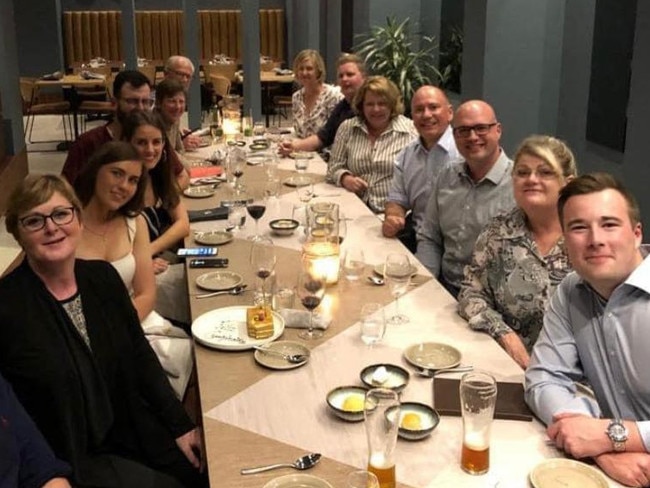
After the Higgins allegations exploded on the national stage two years ago, Reynolds recounts that she requested a private meeting with Sex Discrimination Commissioner Kate Jenkins on February 23, 2021, to discuss the issue. In late September, Reynolds met Jenkins again for an extended interview for her report that was precipitated by the Higgins scandal. “She (Jenkins) was unable to advise me what more I could have done.”
On the ABC’s Insiders program in March 2021, Jenkins confirmed that a victim-centric approach means respecting the agency of women as to whether they wish to make a police complaint. Jenkins alluded to the “very wicked problem” that ministers face when confronted with these issues.
Reynolds was attacked day in, day out for her handling of this matter, including for not informing prime minister Scott Morrison. But she maintains she was respecting Higgins’ agency.
“Was I going to tell the prime minister? No,” she insists. “If you were a staff member in BHP, if you were thinking about whether you were going to make a complaint, if you were talking to police and counsellors, would you want someone else to tell the CEO? Doing so without their permission is a violation of their agency.”
‘Everyone has a breaking point’
Reynolds describes how Labor wanted her scalp, and after days and weeks of attacks they found her breaking point.
“One of the bigger issues now, on reflection, two years later, is who do we want to be as senators and as parliamentarians representing the nation? I’ve had to think a lot about that … whether I could physically and mentally stay. Because what this showed me is that even the strongest people have a breaking point and Labor found mine. It was calculated, it was deliberate.
“I tried to be unfailingly polite and answer the questions as much as I could, respecting her (Higgins’) agency, as I said time and time again. But ultimately, it was like crows pecking on the carcass until it’s gone, they just kept at me, every day, they just kept diminishing me.” After giving her statement to the Senate, and becoming emotional during question time, Reynolds broke down after being asked an unrelated question about Home Affairs.
‘I just was sobbing uncontrollably’
Reynolds describes it quietly: “I could hardly speak. I just said I need you to take this on notice. I sat down and one of my colleagues helped me out, Senator (Paul) Scarr. He’s a beautiful man. And then I was out in the anteroom and I just was sobbing uncontrollably and you know, chest pains. I was literally inconsolable.”
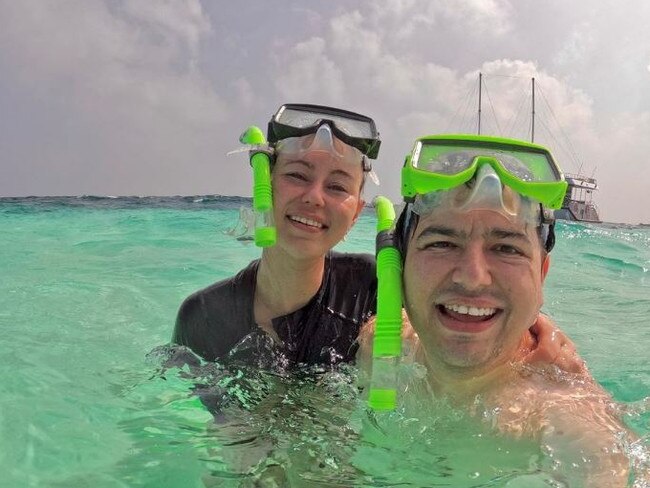
This wasn’t performance art. Here was a strong, successful, determined woman – a woman with an important portfolio, the first woman to reach the rank of army brigadier in the Army Reserves, the first female to hold the position of adjutant-general of army, the first female deputy federal director of the Liberal Party – in a state of utter collapse. Far from the public eye.
“Someone had sent a message to Scott (Morrison) and it was towards the end of his question time, but he came straight over,” she recalls. “I went into the whip’s office and (Morrison) sat with me. I don’t know how long it was for. Just the two of us. It still sort of makes me a little emotional, but he was just so wonderful. I was still sobbing and speaking through tears.
“And, you know, I will never forget his kindness.”
The PM’s apology
The day before her breakdown, Morrison had very publicly rebuked Reynolds, describing it as unacceptable that she had not told him or his office about the alleged rape in her office.
Reynolds tells me that Morrison expressed regret to her in private the next day when Reynolds was escorted, in a state of collapse, from the Senate chamber into the Senate anteroom, and then into Dean Smith’s office.
“He was clearly sorry for what had happened to me. And I explained to him why I couldn’t and didn’t tell him, and he understood,” she says.
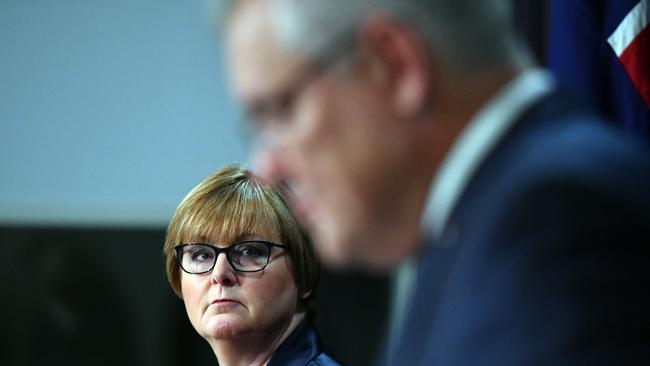
“While she never said the rape word, we had sort of thought she may have had some concerns, something had happened. But it was never my story to tell anyone.”
I ask why she thinks he apologised to her. “He realised that it was never my position to tell anybody about Brittany Higgins’ story,” Reynolds says.
Though Reynolds says she has “mixed feelings” about how some on her own side treated her during this time, she says she is very grateful to her “guardian angels” – Anne Ruston, Jane Hume and Marise Payne – who supported her and protected her. “They were like lionesses when I couldn’t protect myself from Labor, from the PMO, from the media, and other attack dogs. Those running the prime minister’s office distanced themselves from me in exactly the way that the Higgins camp intended. It was lonely,” she recalls. She says her partner, Robert, saved her life with his love and support.
Reynolds is hazy about the exact day – the days and weeks, she says, ran into each other – when she describes another morning in her office after days of relentless, unfair attacks on her. It was before Senate questions.
“I was in the bathroom. I was on the floor. I was just broken. I was sobbing. I was inconsolable. Anne (Ruston) – my saving angel – bolted in from across the corridor … and she just immediately took charge. I think she contacted Simon Birmingham, the (Senate) leader. It was so bad. I literally cannot remember whether I did actually get up for question time that day or I didn’t. She (Ruston) took charge of my staff and she just made sure that I had a space to calm down.”
‘I could have died’
I ask Reynolds about the extent of the collateral damage done to her, attacked in the Senate, in the media, hung out to dry by her own side. “I could have died,” she says simply.
Reynolds ended up in hospital on the eve of a National Press Club address. She recalls former health minister Greg Hunt telling her after question time: “Linda, you look grey”, and arranging for a doctor to see her. She describes the spasms around her heart, her heart rate spiralling up. “It was just awful.”
She ended up waiting outside Canberra Hospital, but finally saw a cardiologist late that night in his rooms. “I had the most horrific night. I didn’t get any sleep, and I was in pain. Robert, Anne (Ruston) and Jane (Hume) were incredibly worried.”
The following day she was still planning to give her NPC address. She spoke with the specialist who, she says, said “don’t be stupid, just come straight down to the hospital. And I did. And I was admitted.”
‘I feel sorry for Brittany’
Few people outside her inner circle understand that, despite the betrayal, the damage, the emotional and physical toll on her, Reynolds has no residual anger. Unusually, especially for a politician, there is little sign of bitterness or a thirst for revenge. Just setting the record straight will do for Reynolds. Part of that is explaining her feelings for Higgins.
“There are no winners from this,” she says more than once to me.
“I feel very sorry for Brittany Higgins because her personal circumstances should always have been played out in the privacy of the justice system – she was terribly exploited by proponents of the #MeToo movement, by opponents of the government.
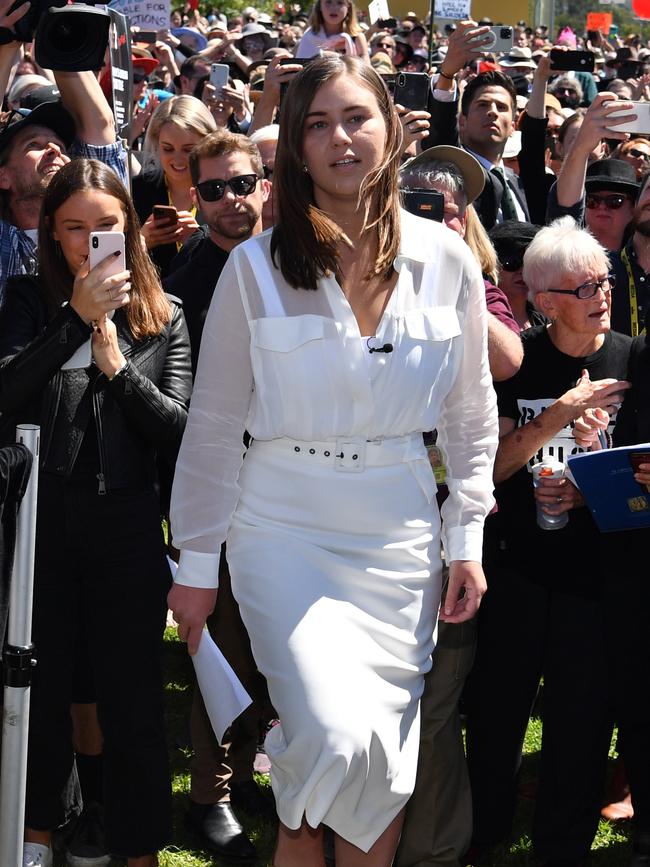
“The allegation that she made to Lisa Wilkinson first, and then to the police, was an allegation of rape. It should never have been played out in the Senate. It should never have been played out in the media.
“And it became all about what happened afterwards, not about that night. And that is fundamentally wrong.
“I have no doubt that this was a highly orchestrated political campaign, a political hit job on myself as defence minister, to get my scalp, to hurt Scott Morrison and the government of the day.”
‘What was The Project thinking?’
“They exploited Brittany Higgins and her story,” says Reynolds. “This should only ever have been in the jurisdiction of law enforcement and the judicial system.”
Reynolds says that if there was an allegation of rape in any other workplace, it would be horrifying if it played out in public, let alone right across that workplace.
“I mean, it just wouldn’t happen. It shouldn’t happen. But yet it was OK for politicians and journalists to do it?
“What was The Project thinking? Putting a woman as distressed as Brittany Higgins was on national TV before she’d even talked to the police again. Putting her outside Parliament House in front of thousands of people. I mean, how is that not exploitation?”
‘Dinner + Drinks with Lucy and Malcolm’
The Weekend Australian has seen copies of two pages from Higgins’ 2021 Kikki.K gold spiral-bound diary for the week from March 8 to March 14 – the week before the March4Justice where Higgins would speak.
There are handwritten entries across the two pages. Under Tuesday, March 9, blue handwriting says: “Laura Tingle dinner” and “Katharine Murphy”.
On Monday, March 8, there are notes to the side about “4Corners Porter/Kate” and “J-Bish interview”. Under Wednesday, March 10, there are notes about “4 Corners Chat” and “Lunch w Sam Maiden.” Under Thursday, March 11: “wrote speech for women’s march.” Under Saturday, March 13, there is larger blue handwriting: “Dinner + Drinks with Lucy and Malcolm.” With an arrow in black pointing to “Lisa and Pete dinner”. Under Sunday, March 14, there are notes about: “Fly to CBR”, and “Newspoll ALP 51 Lead” with “51” circled.
Among the many media and political mentions in Higgins’ diary is a notation under March 12 – “AFP visit and more statement”.
There’s nothing wrong with Higgins dining with journalists, with Wilkinson, FitzSimons, and the Turnbulls. It is an insight, though, into the confluence of forces that transformed an untested allegation of rape into an unstoppable juggernaut.
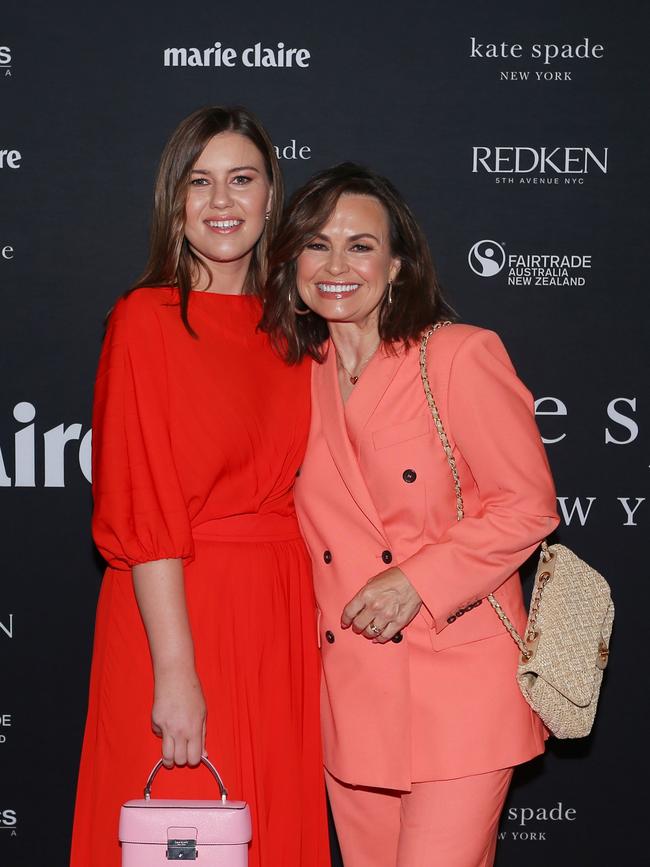
During the trial, an extract from an audio recording was played where Higgins’ boyfriend, David Sharaz, said they wanted the rape allegation to be exposed at the start of the parliamentary sitting week because he had a “friend” on the Labor side – now known to be Finance Minister Katy Gallagher – who would “probe and continue it”.
The trial also revealed that Sharaz, with Higgins’ consent, distributed an extensive information dossier to sections of the media to help them. In the witness box, Higgins described how journalists jockeyed over her story: “It became not even about me or my story, it became about them.”
Reynolds agrees.
“I think it was a terrible abuse of Brittany Higgins’ circumstances. She was clearly, in my mind, exploited for overtly political purposes, by Labor, and also a number of prominent journalists and female advocates who, in the #MeToo zeitgeist, had found their perfect vehicle to elevate the movement but also to bring down a senior minister to hurt the Morrison government.
“This became a political hit job, less about an alleged rape, and almost exclusively about bringing down a cabinet minister, to damage the prime minister and bring down the Morrison government.”
Reynolds has been the subject of so many wicked claims and innuendo, including that her office was steam cleaned as part of a political conspiracy to get rid of evidence of a rape.
“I had no knowledge of or involvement in the decision to clean my office,” she says. Reynolds says the Department of Parliamentary Services arranged a cleaner on Saturday, after hearing of a drunken incident – three days before her office was told about a security breach. She and her office were accused of withholding CCTV footage from Higgins. Also not true. Reynolds says she had not seen the CCTV footage when that claim was first made. It was the property of DPS.
During the trial, Reynolds was accused, in the words of Drumgold, of “coaching” the defence by texting Lehrmann’s lawyer Steve Whybrow SC during his cross-examination of Higgins. This was pure theatre from the DPP. No witness is the property of either defence or prosecution. In any case, Reynolds’ texts were disclosed to Drumgold.
In hindsight, Reynolds says it was a mistake that her partner Robert sat in court before she gave evidence, and for her to ask for transcripts. When she was told this was not appropriate, she accepted that. She says she had never been through a trial. Nothing hung on these misjudgments, yet Drumgold singled her out for criticism when he also rebuked the AFP, after announcing there would be no retrial of Lehrmann.
When we meet, there is a relaxed aura about Reynolds. Her smile is gentle, she laughs easily, though her eyes still give away the pain of the trap that ensnared her. Finally, telling her side, “it’s cathartic”, she says.
We talk about why conservative women are treated so differently by the media, and in politics.
“We are expendable,” she says. “Our story is ignored, diminished, derided. As conservative women and particularly conservative politicians, we’re invisible to the feminist movement. And they really don’t understand us. They don’t want to understand us. We’re expendable. I was expendable. My chief staff was expendable.”
We agree that is for another day.


